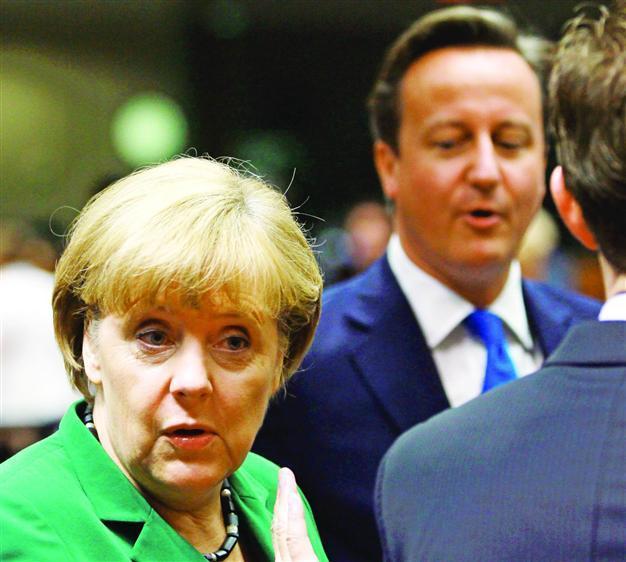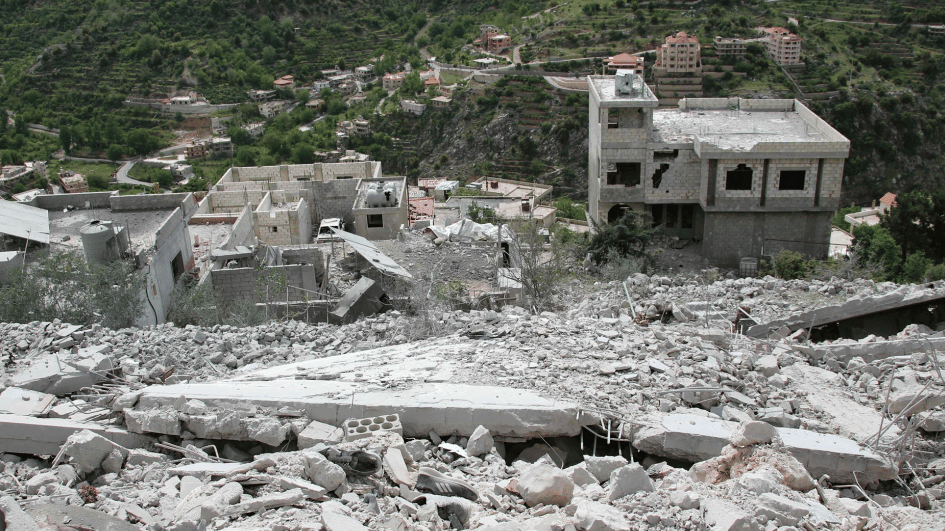Murky EU accord on banking watchdog fails to raise hopes
BRUSSELS - Hürriyet Daily News

German Chancellor Angela Merkel and British Prime Minister David Cameron are seen at the start of the meeting at the second day of a EU Summit in Brussels. EPA photo
European leaders finally agreed to the establishment of a Joint Banking Supervisor on Oct. 19 in a bid to ease damage caused by the ongoing Eurozone crisis, including tensions between Berlin and Paris.German Chancellor Angela Merkel agreed to the plan, supported by French President François Hollande, however the EU leaders’ failure to pinpoint the plan’s launch date has negatively affected markets.
Although the leaders’ said during their Brussels meeting that the decisions on the single supervisory mechanism were key to shoring up lenders and eventually giving them access to loans from Europe’s bailout fund, “many observers were struggling to figure out exactly what had been achieved,” The Associated Press reported.
The leaders chose to focus their attentions on establishing a timeline for issues on which they had already reached an agreement.
“It is good for Europe that we’ll have a single supervisory mechanism up and running in the course of 2013,” Herman Van Rompuy, president of the European Council, which includes the leaders of all 27 EU countries, said on Oct. 19.
The decision appeared to go a step further than the statement the EU heads of state and government adopted after all-night negotiations, which only committed to establishing a plan for the banking supervisor by Jan. 1 and working to make it operational in 2013.
The supervisor must be established before European countries can give their bailout fund, the European Stability Mechanism, the power to bypass national governments and rescue banks directly.
Banks remain at the core of Europe’s financial problems. Many are teetering on the brink of bankruptcy after investments made in lucrative times – including investments in government bonds and real estate – plummeted in value. Some governments have intervened to save their banks, only to worsen their own finances in the process.
“The objective is simple: we want to break this relationship between the management – often the poor management – of banks and the consequences for state budgets,” Belgian Prime Minister Elio Di Rupo said before the second day of summit meetings in Brussels.
The compromise included a victory for both sides – all 6,000 banks in the eurozone will be included, as France had wanted, as well as an agreement that leaders would try to have a legal framework for the supervisor in place by Jan. 1.
However, there is no firm deadline for the establishment of the single supervisor.
For Carsten Brzeski, chief economist at ING, leaders had achieved “a typical European compromise, which had something for everyone,” Agence France-Presse reported.
Violent protests in Greece against more spending cuts and the threat of a general strike in Spain highlighted the risks of unadulterated austerity measures in sparking social unrest.
As the talks began Friday, Hollande said it was “a good deal.” Merkel made no comment. Hollande will follow Merkel in a visit to Greece, the Office of the Greek Prime Minister Antonis Samaras said on Oct. 19.
“He will come, but we don’t have the date or the official program,” said a source from the office.
Private television station Skai reported that Hollande had accepted an invitation from Samaras alongside the EU summit.
Merkel paid a rare visit to Athens – her first in five years – on Oct. 9, in which she praised the course of Greek reforms and repeated her desire to keep the struggling country in the Eurozone.
















